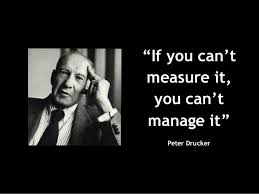What gets measured gets improved. Many professional services firms fail to measure critical performance indicators for their business, clients, and staff, and are therefore failing to track the behaviours and strategies which correlate with future financial and strategic success.
It’s common for firms to focus only on individual billable hours as a success measure. While on the surface this seems to make commercial sense, it actually drives attitudes and behaviours that are detrimental to the firm’s future success.
Although fees are important – and relatively easy to interpret – looking at fee generation in isolation can hide or disguise important realities and encourage short-term focus on the single behaviour being measured (fee generation now).
It also only represents a quantitative and not a qualitative measure of the business.
Create incentives and motivation for staff to concentrate on critical performance metrics that generate sustainable growth and development in the long-term. Qualitative performance measures, formalised and communicated, can enhance quantitative measures such as fee-revenue.
For some firms and practice groups, two or three simple metrics are sufficient. But in many areas, a wider range of contributions is worth measuring.
Alternative success measures: What to consider
Change the culture of your organisation by challenging the status quo with these alternative success measures for your business, clients, and team.
Your business
Revenue growth rate – what is the pace at which you are growing firm income, compared with:
last year?
this year’s target/budget?
the overall marketplace?
Net profit (billings minus expenses) – what is your 3 year net profit trend?
Gross profit margin – what is the percentage of margin that is gross profit?
Utilisation rate – what spare capacity do you have to service new clients?
Your clients
Net promoter/satisfaction score – how likely is it that your clients will recommend you to someone else? Do you deliver more than they expect?
Customer profitability score – what profit do individual clients bring to the business after taking into consideration the cost of attracting and keeping them.
Sales conversion rate – how well do you turn referrals, telephone calls, face to face meetings and web page views into paying work? No point spending more on lead generation if you cannot close the leads you have.
Relative market share – how big is your share of total client spend when it comes to comparing with the competition?
Your team
Staff advocacy score – how likely are your staff to recommend you as a firm to work for? Remember, clients will not fall in love with your firm until the staff do!
Employee engagement level – how does staff behaviour contribute to the goals of the business?
360-degree feedback score – how do staff rate each other, as well as themselves?
Absenteeism factor – how much is staff absenteeism costing the business?
This is far from an exhaustive list of critical performance indicators. But if you regularly review your performance in just a few of these areas, you will build a firm of motivated and focussed staff, happy clients, and ultimately see more profitability than firms who insist that billable hours are the only metric worth measuring.
If you need some help to work out if you are winning or losing, or know you need some assistance on how to grow your practice, do get in touch.

